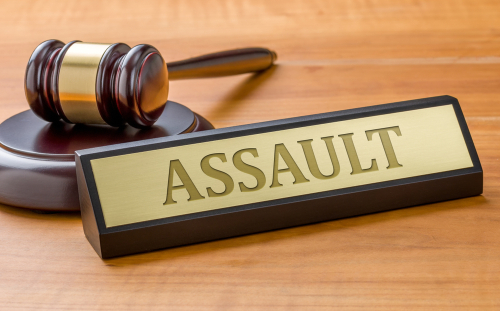Second degree assault Maryland is a charge that carries significant penalties and long-lasting consequences.
Understanding the legal implications of second-degree assault in Maryland is essential for those facing such charges.
This article provides an overview of the penalties, the potential consequences of a conviction, and the vital role an experienced lawyer can play in navigating the legal process.
What Is Second-Degree Assault In Maryland?
Under Maryland law, second-degree assault is defined as intentionally causing physical harm to another person, attempting to cause such harm, or committing an act that places another person in reasonable fear of imminent harm.
The law is outlined in Maryland Criminal Code § 3-203. Unlike first-degree assault, which involves the use of a weapon or an intent to cause serious bodily harm, second-degree assault generally involves less severe circumstances. However, it is still treated as a serious offense.
Penalties For Second-Degree Assault
A conviction for Assault second degree Maryland can lead to severe penalties, including:
Imprisonment: Second-degree assault is usually a misdemeanor. However, it is a serious misdemeanor with potential jail time of up to 10 years.
Fines: A person convicted of second-degree assault may face fines of up to $2,500.
Felony Status in Certain Cases: If the assault is committed against a law enforcement officer, probation officer, or first responder, it can be charged as a felony, with enhanced penalties of up to 10 years of imprisonment and substantial fines.
The specific penalties depend on factors such as the circumstances of the assault, the defendant’s criminal history, and the nature of the victim’s injuries.

Consequences Of A Conviction
Beyond the immediate penalties of fines and imprisonment, a second-degree assault conviction can have long-term consequences that affect various aspects of a person’s life. These include:
Criminal Record: A conviction results in a permanent criminal record, which can hinder future employment opportunities, housing applications, and access to certain professional licenses.
Reputation Damage: Being convicted of a violent crime can tarnish one’s reputation in the community and among peers, potentially straining personal and professional relationships.
Loss of Rights: Depending on the circumstances of the conviction, individuals may face restrictions on firearm ownership or other civil rights.
Immigration Consequences: For non-citizens, a conviction for second-degree assault could result in deportation or other immigration-related penalties.
Impact on Custody and Family Matters: A criminal record for assault may influence family court decisions, particularly in child custody or visitation disputes.
How A Lawyer Can Help
Facing a 2nd degree assault Maryland charge is a daunting experience, but a skilled attorney can make a substantial difference in the outcome of the case. Here are several ways a lawyer can assist:
Understanding the Charges
An experienced lawyer will explain the charges and the legal process in detail, ensuring the defendant fully understands their situation.
They will review the evidence and identify any weaknesses in the prosecution’s case.
Building a Strong Defense
Defense strategies for second-degree assault can include several approaches. One common defense is self-defense, where the defendant argues their actions were necessary to protect themselves or others from immediate harm.
Another strategy is lack of intent, which involves showing that the defendant did not intend to cause harm or fear.
In some cases, mistaken identity may be used, where evidence is presented to prove the defendant was not the person who committed the assault.
Additionally, if applicable, the defense may argue consent, claiming the alleged victim agreed to the act.
A skilled lawyer will customize the defense based on the specific details of the case, aiming to achieve the best possible outcome.
Negotiating Plea Deals
A skilled lawyer can work to reduce the charges or secure a lighter sentence in exchange for a guilty plea. This approach may help avoid the risks associated with a trial.
Representing the Defendant in Court
Having an experienced trial attorney is crucial if the case goes to trial. They will present evidence, cross-examine witnesses, and argue on behalf of the defendant to create reasonable doubt about their guilt.
Mitigating Sentencing
In the event of a conviction, a lawyer can advocate for leniency during sentencing. This may involve presenting evidence of the defendant’s good character, lack of prior criminal history, or other mitigating factors.
Expungement
If the charges are dropped or the defendant is acquitted, a lawyer can assist in petitioning for the record to be expunged. Expungement can remove the arrest and charge from public records, minimizing the long-term impact on the defendant’s life.
Conclusion
Second-degree assault in Maryland is a serious charge with significant penalties and life-altering consequences.
A conviction can lead to imprisonment, fines, and collateral consequences that affect employment, reputation, and personal relationships.
However, with the assistance of a knowledgeable lawyers like FrizWoods , individuals facing such charges can navigate the legal system more effectively and work toward the best possible outcome.
Whether it involves building a strong defense, negotiating a plea deal, or advocating for leniency, a lawyer’s expertise can make all the difference in protecting the rights and future of the accused.

